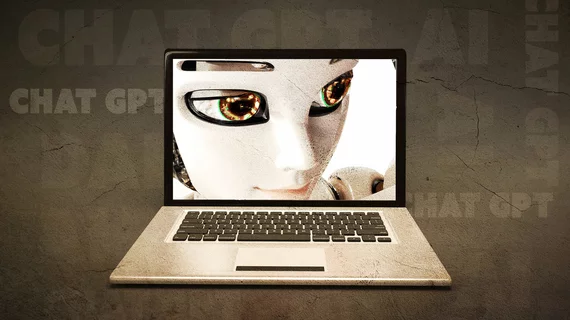ChatGPT helps radiologist churn out 16 papers in 4 months
One radiologist was able to write 16 research papers in a mere four months, publishing five of them in four different medical journals and prompting many to question how he achieved such a feat while finding time to eat and sleep.
Som Biswas, a radiologist at the University of Tennessee Health Science Center, acknowledged his secret weapon—a little AI chatbot known as ChatGPT. Biswas decided to test the program’s medical writing chops following its November 2022 debut and he's been using it to his advantage ever since.
“I’m a researcher and I publish articles on a regular basis,” Biswas told The Daily Beast. “Those two things linked up in my brain: If ChatGPT can be used to write stories and jokes, why not use it for research or publication for serious articles?”
Biswas began experimenting with ChatGPT by prompting it to write some segments on a topic he has great familiarity with—radiology. Eventually he was able to task the program with writing an entire paper that was published in Radiology. “ChatGPT and the Future of Medical Writing,” which was edited by Biswas, was published on Feb. 2, 2023.
Since then, the radiologist has used the chatbot to compile at least 16 additional papers. The most recent paper took the form of commentary and was published in Pediatric Radiology, with Biswas acknowledging his role as an editor to the chatbot.
Biswas indicated that his interest in ChatGPT is rooted in being able to adapt to change, that he is simply trying to better understand something that could potentially make parts of his job easier.
“Healthcare is going to change. Writing is going to change. Research is going to change,” Biswas said. “I’m just trying to publish now and show it so people can know about it and explore more.”
Biswas is one of many professionals in the field praising the potential of ChatGPT for streamlining various professional tasks. Since its debut, ChatGPT’s work (or commentary on its work) has been published in numerous medical journals. It has written nuclear medicine reports, compiled a “pretty amazing” list of breast cancer screening recommendations and will soon be utilized in a medical imaging app for patients seeking information on imaging exams.
However, on the other side of the coin many argue that the chatbot’s reliability cannot be trusted. One paper recently revealed that ChatGPT cites “fictitious references” and frequently portrays “significant inaccuracies” as factual information. This, in addition to other reported instances of the chatbot providing inaccurate medical information, has prompted concern among experts in the medical field, many of whom believe that ChatGPT’s advice could be mistaken for real-world professional insight by untrained readers who might perceive the information they consume from the chatbot as legitimately sourced.
The debate on ChatGPT does not appear as though it will slow down any time soon, as users are learning to utilize the program to their advantage more and more every day. And while the future landscape is likely to continue to change, as are experts’ opinions on ChatGPT’s role in medical publishing, Biswas remains optimistic. In his February Radiology paper, the radiologist described ChatGPT as “a powerful tool” that can support the future of medical publishing—when used with caution, of course.

